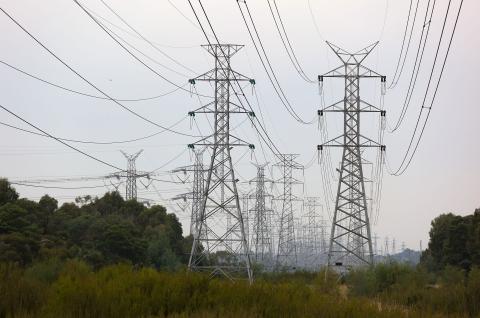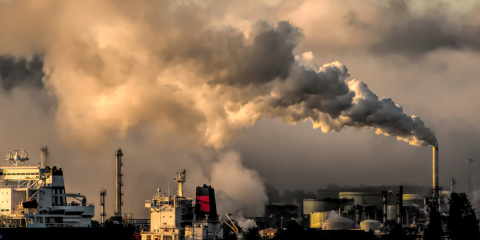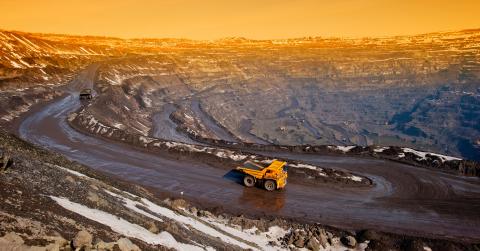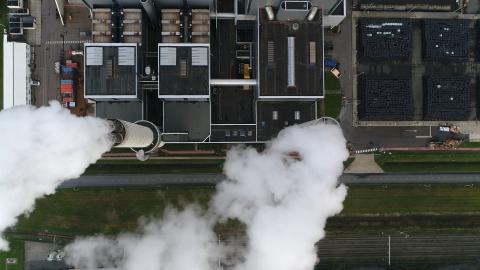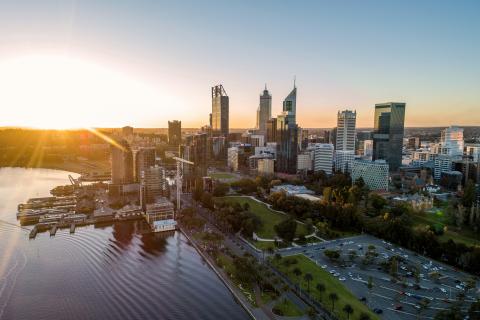The Narrabri Gas Project - Submission to Independent Planning Commission
Download Full Version

Key Findings
On any economic or ESG factor, the Commission must reject the Narrabri Gas proposal
Narrabri CSG project will embed high gas costs
Executive Summary
When the Independent Planning Commission NSW (IPC) assesses the clear and unequivocal evidence surrounding any one of the economic, environmental, social and governance (ESG) factors surrounding the Narrabri Gas project, the Commission will have no other avenue but to reject the proposal.
The Commission will have no other avenue but to reject the proposal.
We set out the reasons why the IPC must reject the Narrabri Gas proposal in this submission, and summarise the key points below:
- Gas is no longer serving a role as a transition fuel either domestically or globally. The clear established global trend is towards more renewable power in electricity systems, and less gas.
- There is a global supply glut of gas that will continue until late this decade. The factors that led to the great global gas glut were in place prior to 2020. Overbuilding of LNG plants and over-production of uneconomic shale and coal seam gas (CSG) has occurred for years. The COVID–19 demand depression has merely accelerated the process.
- Globally the LNG industry is in a deep depression. The U.S. shale fracking industry has imploded with multiple bankruptcies and a severe depression in activity. Cargo ships carrying LNG are circling oceans searching for a buyer.
- Globally, gas prices are very depressed. There is no place for high cost Narrabri gas in this market.
- Domestically, gas usage has shrunk. In Australia, gas usage in gas-fired power plants has declined by 58%1 since 2014 whilst renewables have increased to produce 25% of the energy in the National Electricity Market.
- The Australian Energy Market Operator, the only agency to model a future electricity grid in its Integrated Systems Plan, has shown that by 2040, the role of gas in a renewable rich grid is smaller than today.
- Queensland’s CSG to LNG project at Gladstone is a financial failure. Santos’ CSG to LNG Gladstone experiment on the east coast of Australia has been a financial failure with nearly $8bn written off. The latest $976m write-off was announced in July 2020 shortly after Santos gave evidence before the IPC. The three lead companies in the consortium that own the three export CSG to LNG plants at Gladstone have written off over $24bn since 2014 on their failed investments.
- Every year since 2014 Santos has failed to fulfil its export contracts.
- Santos has demonstrably destroyed shareholder value since 2014.
- East coast gas consumers pay too much for gas. The ACCC’s gas price enquiry (2017-2025) repeatedly shows that the Australian domestic consumer pays too much for gas.
- The Narrabri gas project will not bring down the cost of gas for the domestic consumer as Santos claims. And despite claims to the contrary by the Department of Planning, further supply and high production costs will affect the domestic market. The Narrabri gas project will embed high cost gas into the system, forcing up the price of gas for the domestic consumer.
- Santos has misled the Independent Planning Commission as to the cost savings it has made in the East Coast CSG industry.
- The east coast gas industry is only a handful of players that have consistently price gouged the Australian domestic consumer and our governments have allowed them to. This ‘cartel’ has socialised its losses on the export markets over the Australian energy consumer.
- Santos is not a fit and proper entity to hold a CSG production licence in the state of NSW as it has actively flouted approval conditions in Queensland.
- Gas use in industry has fallen 12% since 2014. High gas prices have significantly contributed to high wholesale electricity prices.
- Santos’ royalty claims are not transparent. The IPC should look at the CSG to LNG’s industries’ contribution to society in terms of tax and royalties and judge it according to its actual history in Queensland and not the extravagant claims of $1.2 billion in royalties, backed by scant evidence, made by the proponent of this project, Santos.
- Gas use in residential and commercial applications can largely be substituted for cheaper electrical heating, in the form of air conditioners, induction cooking and heat pumps for hot water. This would unfetter up to 190 petajoules (PJ) per annum and dwarf the contribution of at best 70PJ from Narrabri.
- The east coast of Australia needs a domestic gas reservation policy. A domestic gas reservation on existing and prospective fields at $4/GJ is the only way to ensure low prices and assured supply for Australian domestic consumers.
- The Queensland experience is that over 570 agricultural water bores will run dry (in just one gas field) as a direct result of CSG. That the Department of Planning has not highlighted this, and the clear damage to water resources that is the lived experience in Queensland, is lamentable.
- Emissions from unconventional gas fields are high and when burned in peaking plants and used for export are no better than coal for the climate.
- Gas is a high greenhouse gas emitting fuel. Every State and Territory in Australia has some sort of net zero emissions target by 2050. Producing and consuming more gas is fundamentally opposed to current State and Territory government policies on emissions.
- The Narrabri gas project has encountered staunch and widespread opposition. A CSG project with a large environmental footprint on both public and private land needs a social licence to operate.
- The governance surrounding the gas industry is poor. Science is conducted by the deeply conflicted arm of the CSIR0, the gas industry sponsored Gas Industry Social and Environmental Research Alliance (GISERA).
- The NSW approvals process is not fit-for-purpose to assess CSG projects.
- The NSW Chief Scientist’s 16 recommendations for the safe operation of CSG in NSW have not been fully implemented despite the final report being received by the NSW government 6 years ago. The gas industry and/or government cannot claim safe operation of projects until all 16 recommendations have been fully implemented. Approving Narrabri in the absence of such oversight would be extremely reckless.
IEEFA asks that the IPC considers the economic, environmental and social governance (ESG) factors of the Narrabri gas project. The Narrabri Gas project is not approvable on economic grounds, or on ESG metrics. Santos is not a fit and proper entity to hold a CSG production licence in the State of NSW. The East Coast CSG to LNG industry has torn up the wealth of our nation. To continue to allow it to, by approving Narrabri, is not logical or reasonable.









